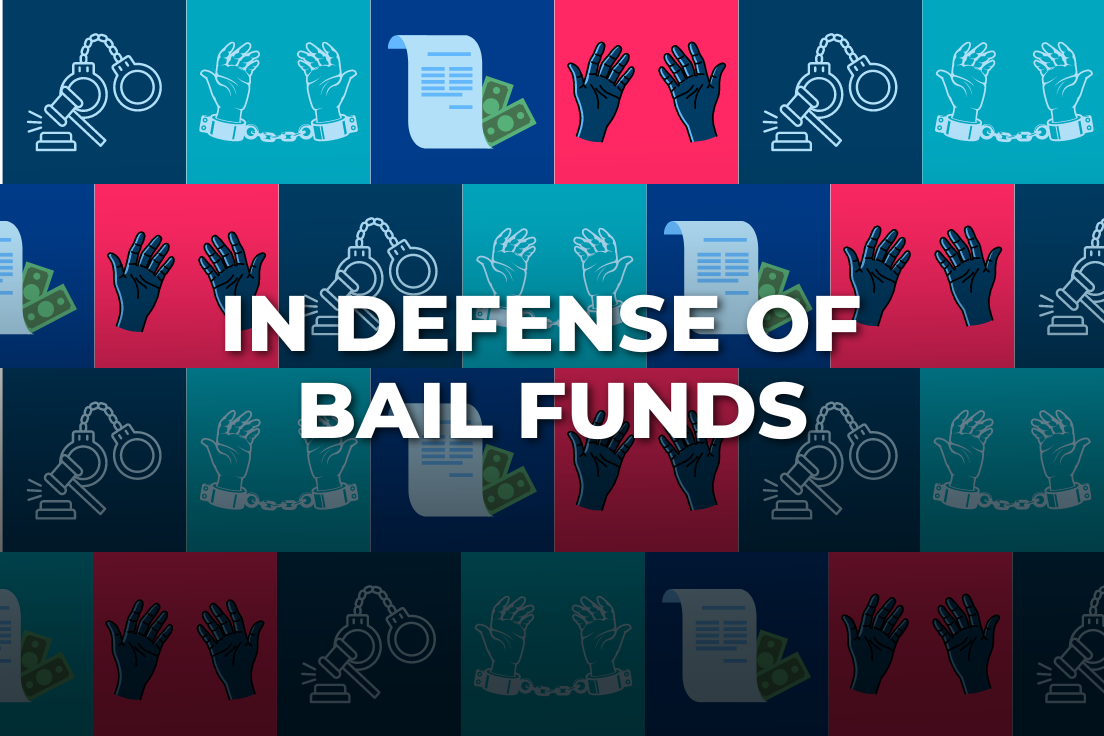In the United States, an alarming half a million individuals who haven’t even been convicted of a crime are currently trapped behind bars. They’re locked up while awaiting trial, solely because they lack the financial means to secure their release and pay for their freedom. This is where bail funds step onto the scene, offering a glimmer of hope in a system plagued by inequality. Bail funds play a crucial role in challenging our current oppressive justice system and striving for a future where fairness reigns supreme.
What is a Bail Fund?
A bail fund is a powerful force, often fueled by charitable donations, that steps in to pay cash bail for those in jail awaiting trial who cannot afford to do so themselves. Bail funds recognize that not only is our justice system deeply flawed, but mass incarceration disproportionately impacts marginalized communities, especially people of color and those facing economic hardship. We hold a collective responsibility to end this injustice and urgently reform the bail system. Until then, bail funds serve as a lifeline, providing support to minorities and vulnerable populations who are unable to secure their freedom by other means.
Backlash on Bail Funds
For generations, bail funds have stood as beacons of hope and the cornerstone of many social justice movements. The legacy of slavery rears its ugly head daily as the population in our jails increases. With that so does the decades-long tradition of families and communities rallying together and pooling their limited resources to reclaim the freedom of those near and dear to them. Today, nonprofit organizations like the Justice Policy Institute, The Bail Project, and Texas Organizing Project are fighting back against the unfair and unjust pretrial system by extending the same lifeline to strangers. However, in recent months and years, we’ve witnessed a backlash against bail funds, with several municipalities going so far as trying to put an end to them altogether.
Paying bail for those unable to afford it is not a criminal offense. Yet, bail fund organizers are being punished, targeted, intimidated, and arrested for providing aid to individuals who cannot afford the excessive bail set for them. The goal is clear: to drain the resources and obliterate morale of organizations engaged in the critical work of restoring fairness and dignity to those entangled in an unjust system.
It’s time for us to unite in defense of bail funds and reform the cash bail system, which has long preyed upon the most vulnerable among us—the poor.
Predictably, those who benefit from this deeply flawed system, from prosecutors to bail bondsmen, show no urgency to rectify it. Prosecutors exploit the desperation of those behind bars, capitalizing on their dire circumstances to secure convictions through coercive deals. Meanwhile, the bail bond industry continues to thrive as a billion-dollar enterprise, leaving little incentive for bail bondsmen (and the politicians they support) to advocate for meaningful reform.
That is why the burden is on us to stand up in defense of our nonprofit allies, who are doing the hard work of reforming an unjust criminal justice system and securing the release of those who cannot otherwise afford to secure their freedom from pre-trial incarceration.
How can nonprofits fight back?
Now is the time to rally against the intimidation tactics and unjust attacks aimed at bail fund organizations. It is in this critical moment that nonprofits have a pivotal role to play, leveraging their influence to shape legislation that will redefine the very landscape of bail reform and the essential role of bail funds.
Through dedicated lobbying efforts, nonprofits can advocate for the passage of laws abolishing cash bail while also lobbying against restrictive measures that hinder the fundraising and bond-posting capabilities of charitable bail funds. To delve deeper into the lobbying rules for public charities, consult Bolder Advocacy’s enlightening publication, “Being a Player.”
Nonprofits can also:
- Engage in other forms of policy advocacy,
- Launch litigation to end money bail systems and defend bail funds,
- Organize and mobilize to build collective power to drive reform,
- Educate legislators and the public on the injustices that plague our pretrial system, and
- Fund organizations that host bail funds.
We are living under a justice system that only values the freedom of the wealthy. This is not a safety issue. If it were, bondsmen would also have clear guidelines in place to determine who can be released on bond. Instead, the sole determinant when posting bond through a bondsman is the availability of cash. The wealth one does or does not possess should never be the deciding factor in whether they can be freed from pretrial detention. It is time to reclaim power from the clutches of the bail bond industry and place it into the hands of underserved, marginalized, and forgotten communities.
We must fight for bold reform and protect the right to stand united in support of the of those incarcerated in our criminal justice system.

